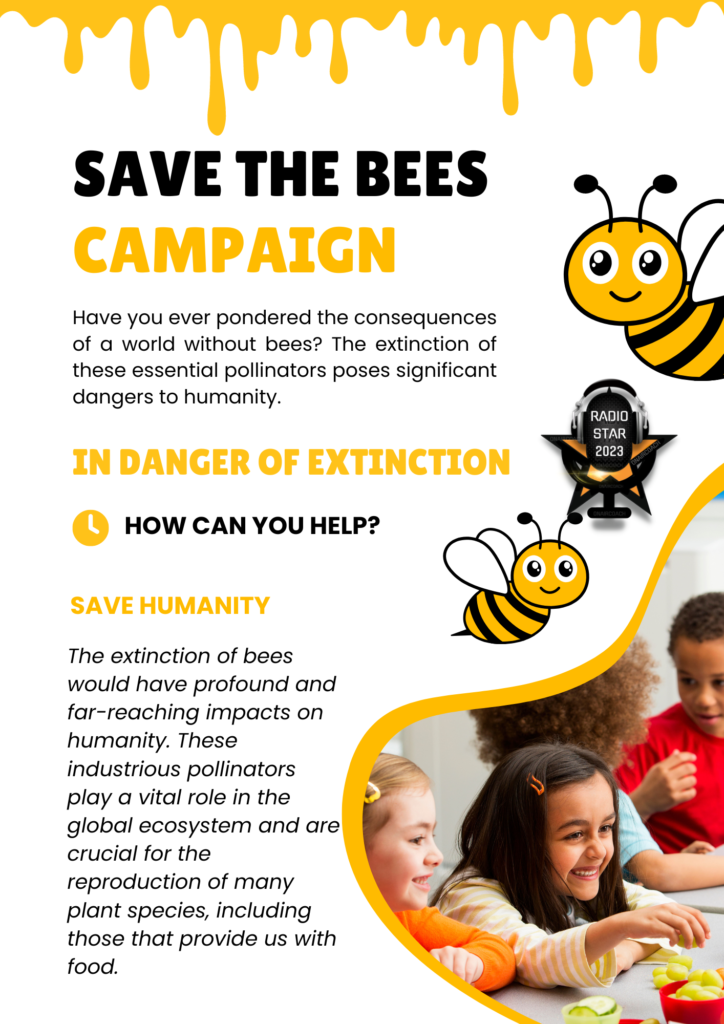SAVE THE BEES

Here are some of the dangers that could arise from the loss of bees:
-
Food Supply Disruption: Bees are responsible for pollinating a substantial portion of the world’s crops, including fruits, vegetables, nuts, and oilseeds. If bees were to disappear, the pollination of these crops would be severely compromised, leading to decreased yields and potential shortages of food. This could result in higher prices, food insecurity, and reduced dietary diversity.
-
Economic Consequences: Agriculture is a cornerstone of many economies, and the decline of bee populations would have significant economic ramifications. The loss of pollinators could lead to job losses in the agricultural sector, reduced agricultural output, and decreased revenue for farmers and related industries.
-
Biodiversity Loss: The decline of bees could trigger a ripple effect across ecosystems. Many plant species rely on bee pollination to reproduce, and without bees, these plants could decline or disappear, impacting the animals that depend on them for food and shelter. This could lead to a cascade of biodiversity loss throughout the food chain.
-
Nutritional Imbalances: A reduction in the variety of crops due to lack of pollination could lead to imbalances in human diets. Many essential vitamins, minerals, and nutrients are obtained from a diverse range of fruits and vegetables, and a decline in their availability could contribute to nutritional deficiencies and health problems.
-
Environmental Degradation: Bees are not only important for agriculture but also for maintaining healthy ecosystems. They contribute to the pollination of wild plants, which in turn support other wildlife and contribute to ecosystem stability. The absence of bees could disrupt these natural systems, leading to increased competition among species and potential ecosystem collapse.
-
Increased Pesticide Use: To compensate for the loss of pollinators, farmers might resort to using more synthetic pesticides and fertilizers to improve crop yields. This could have negative effects on the environment, water quality, and human health.
-
Climate Change Impact: Bees and other pollinators help plants adapt to changing environmental conditions by facilitating genetic diversity through cross-pollination. The loss of bees could make some plant species more vulnerable to the effects of climate change, affecting their ability to adapt and survive.
-
Global Food Security: A decline in pollinator populations could exacerbate global food security issues, particularly in regions where people are already struggling to access nutritious and affordable food. This could lead to social unrest and geopolitical challenges.
In summary, the extinction of bees would disrupt ecosystems, threaten food production, and have cascading effects on economies, biodiversity, and human well-being. It underscores the importance of preserving and protecting these crucial pollinators for the sustainability of our planet and the future of humanity.
HOW YOU CAN HELP
